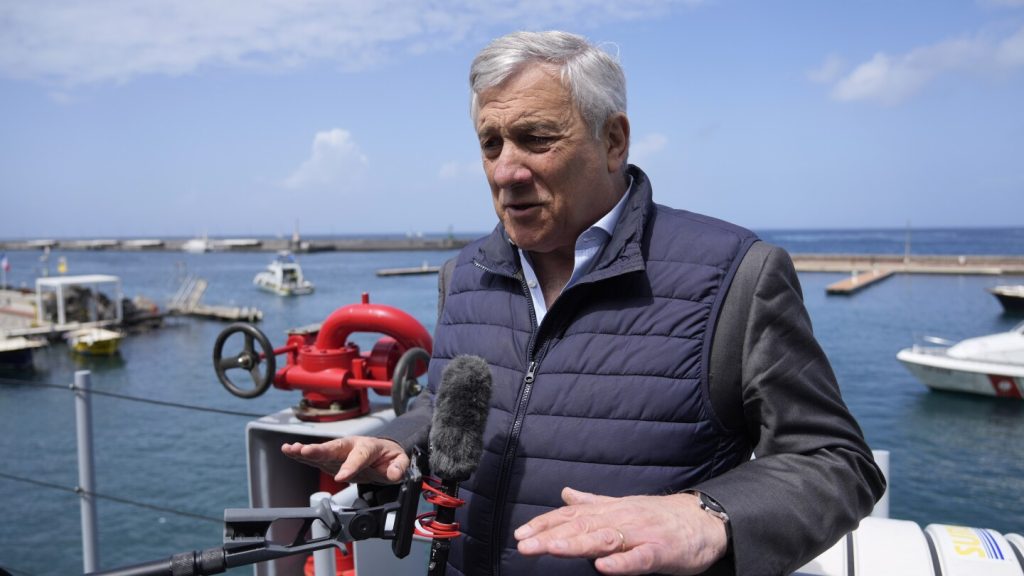Group of Seven foreign ministers are gathering on the Italian resort island of Capri, with discussions focused on imposing targeted new sanctions against Iran in response to its recent attack on Israel. The attack, which involved hundreds of drones, ballistic missiles, and cruise missiles, has heightened tensions in the region and raised concerns about further escalation. The G7 leaders, under Italy’s presidency, are calling for restraint from Israel and considering sanctions against the makers of drones used in the attack, as well as entities supporting Iran’s missile program.
German Foreign Minister Annalena Baerbock has also called for new sanctions against Iran and made a last-minute visit to Israel to discuss the situation. The G7 ministers are expected to discuss ways to prevent further escalation and address the growing violence in the region. As Israel’s conflict with Gaza continues, the attack by Iran has added a sense of urgency to the meeting and highlighted the need for coordinated action to prevent further destabilization. The United States, Britain, and other European countries are considering imposing sanctions on Iran over its support of Russia’s war in Ukraine, as well as its involvement in regional conflicts.
The ongoing war in Ukraine is another key issue on the agenda, with Ukrainian Foreign Minister Dmytro Kuleba and NATO Secretary General Jens Stoltenberg invited to the meeting to discuss the country’s need for military support. The US and European countries are exploring proposals to use frozen Russian assets to provide weapons and funds for Ukraine, as efforts to secure new funding for weapons have stalled in Congress. The EU holds around 200 billion euros in Russian central bank assets, most of which is frozen, and proposals to use these funds to support Ukraine are gaining momentum.
In the Middle East, tensions have been escalating since the start of the latest Israel-Hamas war, with world leaders urging Israel to exercise restraint. The recent attack by Iran on Israel has further heightened tensions in the region, raising concerns about the possibility of a wider conflict. The G7 ministers are discussing ways to prevent further violence and address the root causes of the conflicts in the region. The European Central Bank has warned against seizing Russian assets directly, as it could undermine confidence in the euro currency and EU markets, but proposals to use windfall profits from these assets to support Ukraine are being considered.
Overall, the G7 meeting on Capri is focused on addressing the urgent challenges facing the region, from the conflict between Israel and Iran to the war in Ukraine. Calls for targeted sanctions against Iran and increased support for Ukraine are key priorities for the ministers, who are working to find coordinated solutions to prevent further escalation. With tensions already high in the Middle East and Eastern Europe, the international community is closely watching the outcome of the meeting and hoping for concrete steps towards peace and stability in the region.


